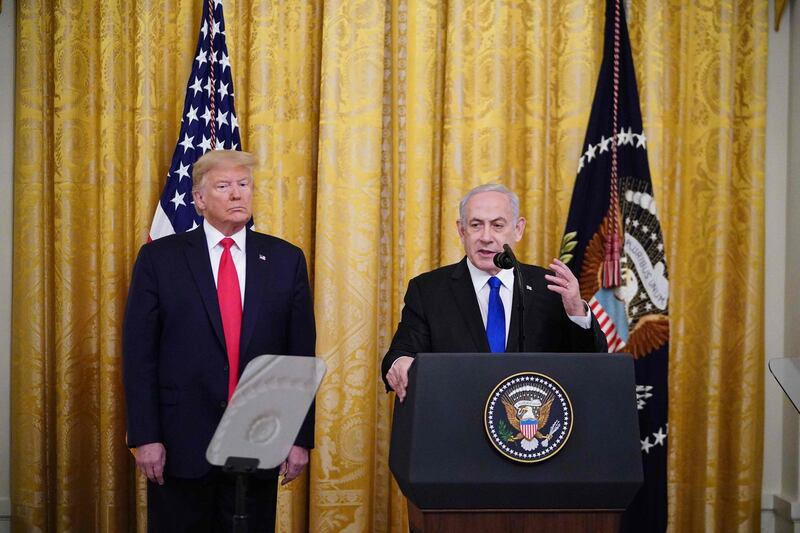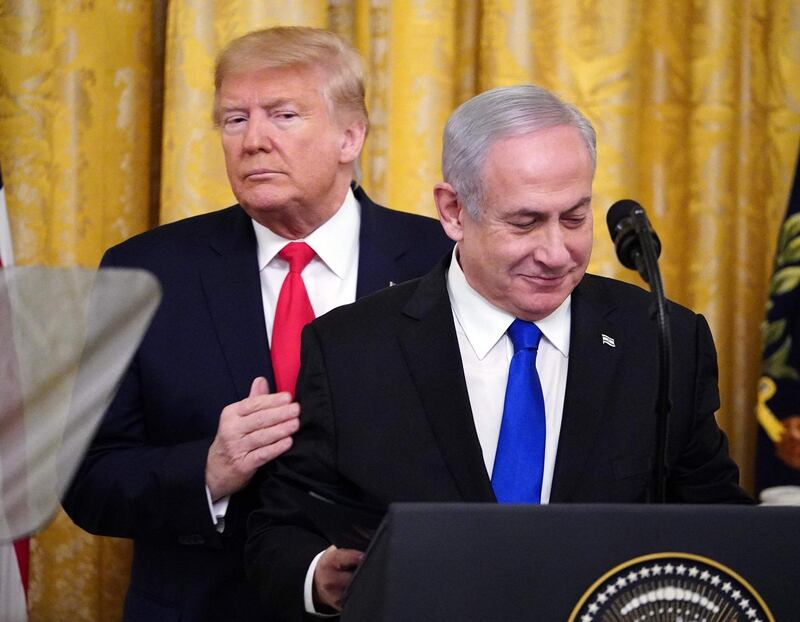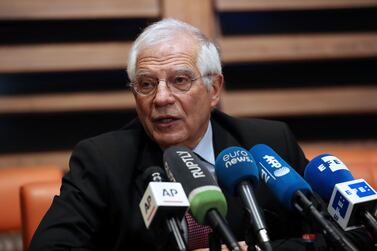Palestinian President Mahmoud Abbas will travel to the UN in New York next week to push for a Security Council resolution condemning US President Donald Trump's peace proposals.
On Tuesday, a draft UN Security Council resolution against an Israeli plan to annex its settlements in the West Bank was circulated in condemnation of Mr Trump's peace plan.
The text, circulated to council members by Tunisia and Indonesia, would almost certainly be vetoed by the US veto but offered some members’ criticism of the plan Mr Trump unveiled last week alongside Israeli Prime Minister Benjamin Netanyahu.
"The draft resolution that will be voted on in the Security Council will include the rejection of the Trump-Netanyahu deal," Saleh Rafat, a member of the executive committee of the Palestine Liberation Organisation, told AFP.
Mr Rafat called Mr Trump's plan "the opposite of the UN Security Council resolutions on the Palestinian conflict".
If vetoed at the Security Council, the matter will be taken to the UN General Assembly, he said.
Mr Abbas will arrive in New York on Monday and address the Security Council on Tuesday, Palestine's permanent representative to the UN, Riyad Mansour, told the Voice of Palestine radio programme.
Mr Trump's proposals were immediately rejected by the Palestinians, who have boycotted his administration over its bias towards Israel.
They included giving Israel approval to annex settlements in the occupied West Bank, the largest part of the territories that the Palestinians want for their future state.
Proposals also include the eventual creation of a demilitarised Palestinian state, over which Israeli security would have near total control.
Earlier on Tuesday, a senior EU official rejected Mr Trump’s plan for securing peace in the Middle East and expressed concern about the planned annexations.
EU foreign policy chief Josep Borrell on Tuesday stressed the bloc’s commitment to a two-state solution, based on 1967 lines with the possibility of mutually agreed land-swaps, including “an independent, democratic, contiguous, sovereign and viable state of Palestine".
